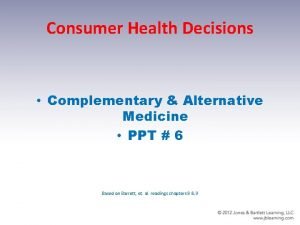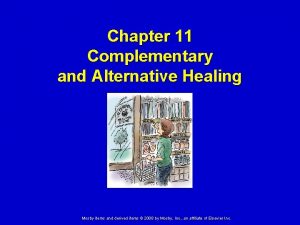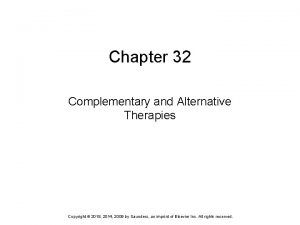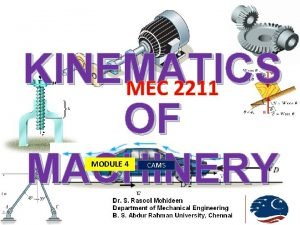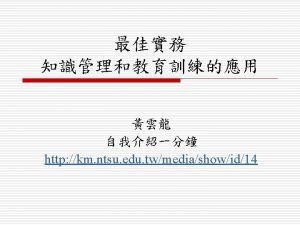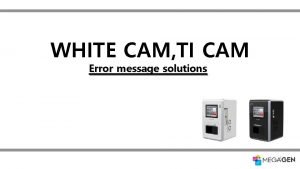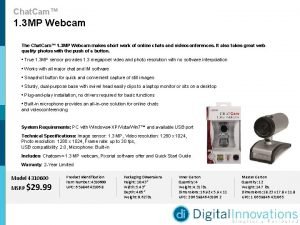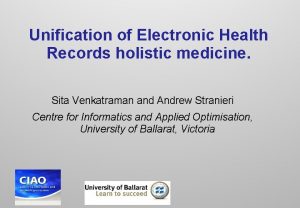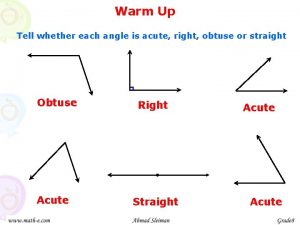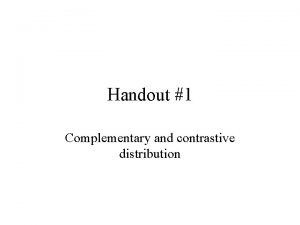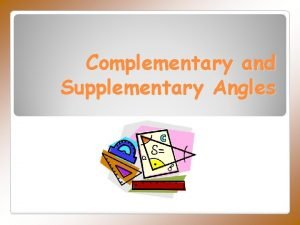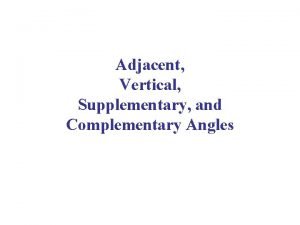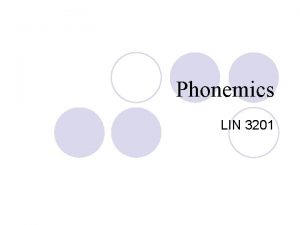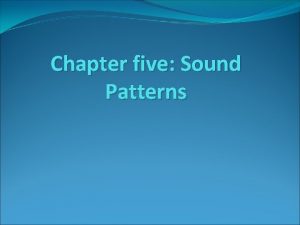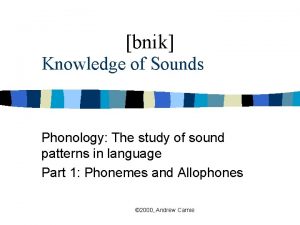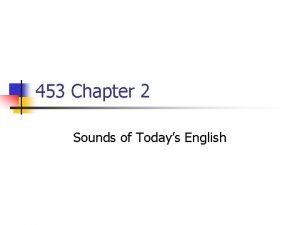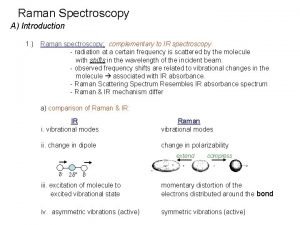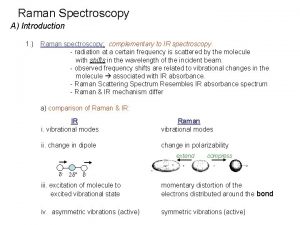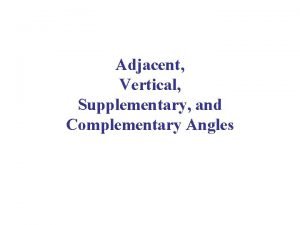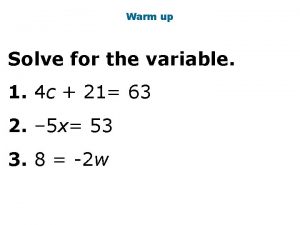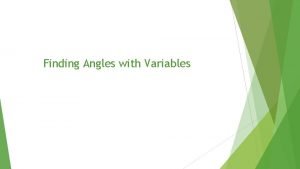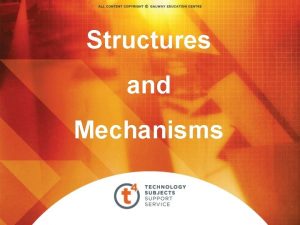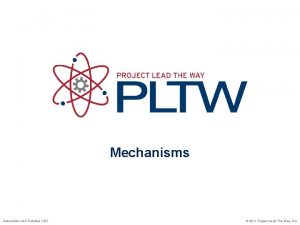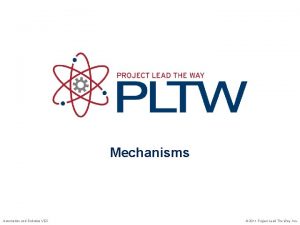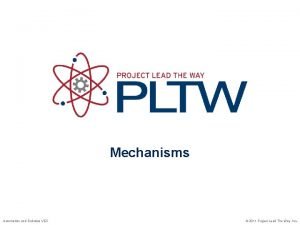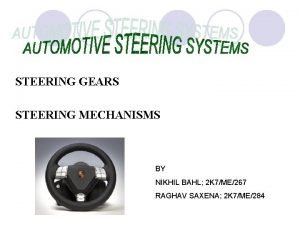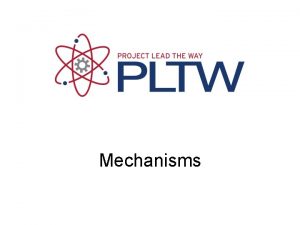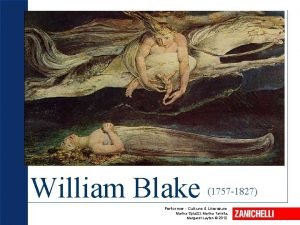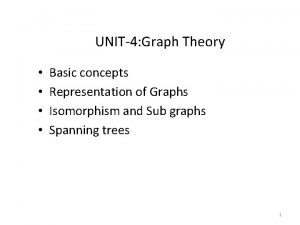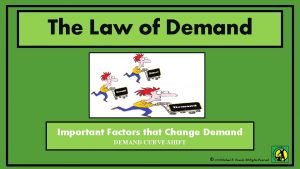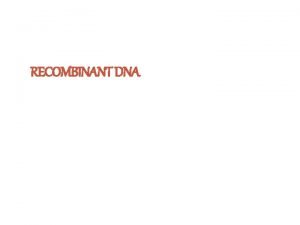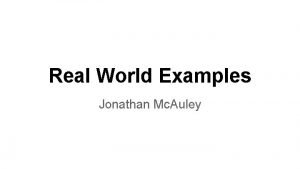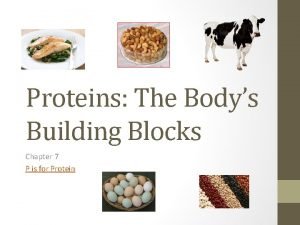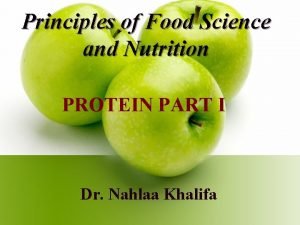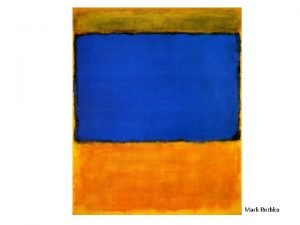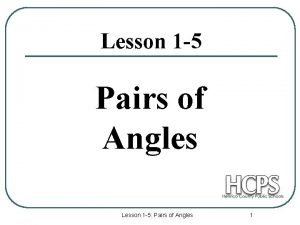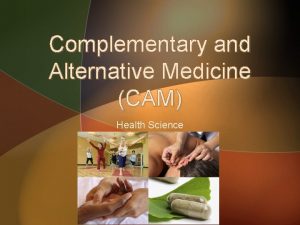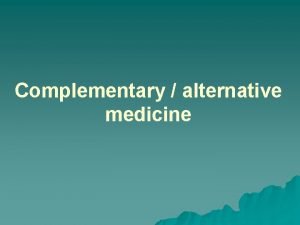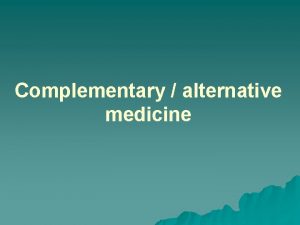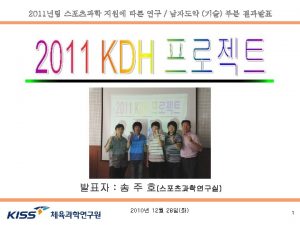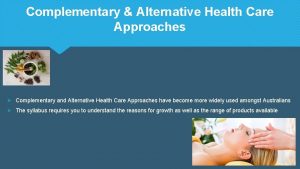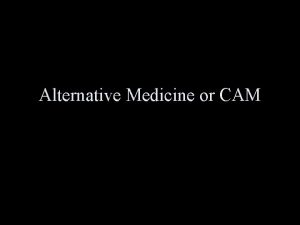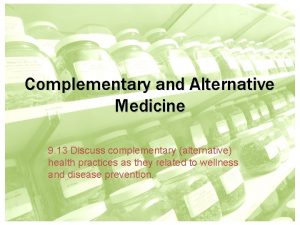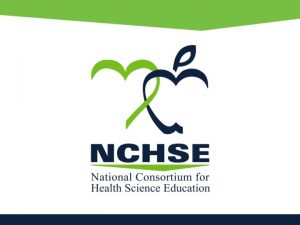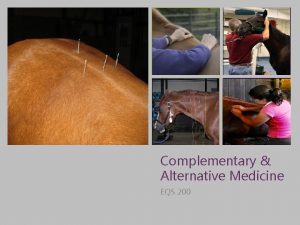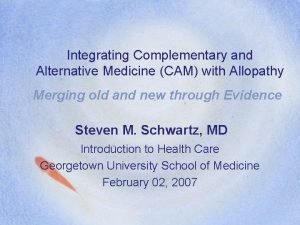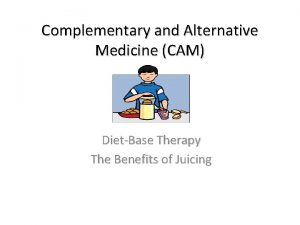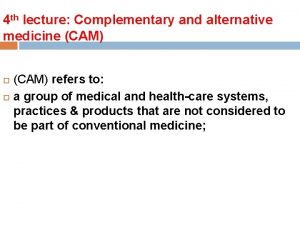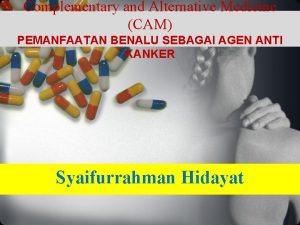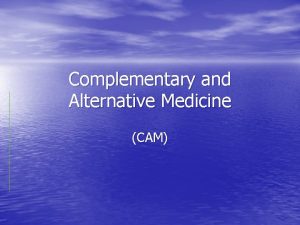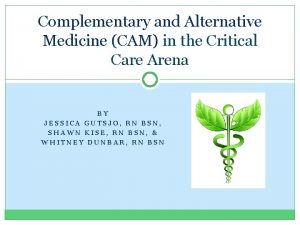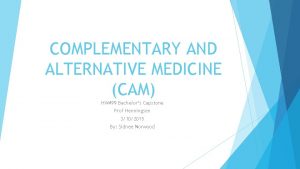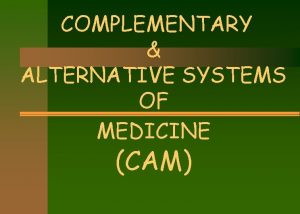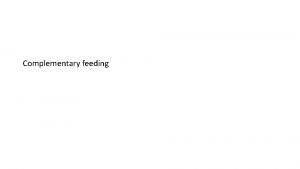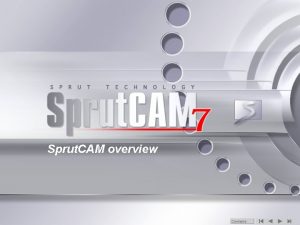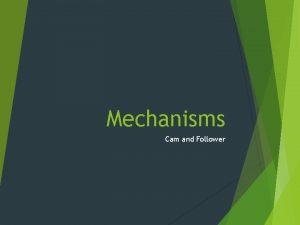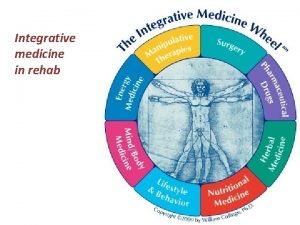Overview of Complementary and Alternative Medicine CAM and









































- Slides: 41

Overview of Complementary and Alternative Medicine (CAM) and Its Role in Caring for Veterans with Post -Deployment Health Concerns An-Fu Hsiao, MD, PHD September 15, 2010 WRIISC: Caring for Veterans with Post-Deployment Health Concerns

Overview § Introduction of Complementary and Alternative Medicine (CAM) § Philosophical discussion about Evidence. Based approach § Literature review of the efficacy of acupuncture and herbs/supplements for treatment of headaches and osteoarthritis

Popularity of Complementary and Alternative Medicine (CAM) in General Population § CAM Is defined as “a group of therapies that are not taught in conventional medical school or are outside of mainstream, conventional medicine” § Total 1997 out-of-pocket expenditures related to CAM were estimated at $27 billion § 42% of general population used at least one type of CAM within past 12 months

Popularity of Complementary and Alternative Medicine (CAM) in Veterans § Headaches and osteoarthritis are common health concerns for post-deployment Veterans § Estimated that 30% to 50% of Veterans used CAM § OEF/OIF, female, and younger Veterans are more likely to use CAM and their use will increase in the future

CAM vs. Integrative Medicine § CAM and Integrative Medicine are two different paradigms § Integrative Medicine can be defined as “integrating best elements of conventional medicine and CAM and combining them into a safer and more effective model of healing” § Our talk will focused on CAM because there is little high-quality research and data on integrative medicine

Potential Barriers to Integration of CAM with Conventional Treatments § Lack of knowledge on the effectiveness and safety of CAM treatments. § Lack of know-how in referring to highquality CAM practitioners. § “Turf battles” between physicians and CAM practitioners.

Lack of Safe and Effective Conventional Medical Treatment for Headaches and Osteoarthritis § The treatment goals for headaches and osteoarthritis focus on controlling pain and improving health-related quality of life. § Pharmacological therapies include NSAIDS, COX-2 inhibitors, topical analgesics, opioid analgesics, and intra-articular steroid and hyaluronate injections. § These treatments are expensive § May cause dangerous side effects

Not All CAM Modalities Are Created Equal § Some CAM modalities are evidencebased, while others are based on anecdotes and tradition. § Some CAM modalities may have adverse effects. § Some CAM modalities may cause adverse herb-drug interactions.

Is Randomized Controlled Trial the Best Research Design to Evaluate the Efficacy of CAM? § Randomized Controlled Trial (RCT) is considered the gold standard and the strongest research design in evaluating efficacy of conventional treatment § RCT may not be the best way to evaluate the efficacy of CAM because they are individualized, multi-components, and difficult to double blind

Is It Fair to Require CAM Use to Be Evidence-Based? § Is it fair to ask CAM to be held at such high standard when only 20 -25% of conventional medicine is evidence-based? § Lack adequate funding to support CAM research (NCCAM budget is $100 million and NIH budget is $24 billion)

Acupuncture § One part of the ancient, rich system of Traditional Chinese Med, generally combined w/ Chinese herbs § Yin-Yang - opposing forces in the body. Goal of acupuncture is to restore their balance. § Qi - Life energy. Runs along channels (meridians). Acupuncture relieves blockages, improves flow § Overarching goal: rebalance, redistribute Yin-Yang and allow Qi to flow more freely. § Western Acup – needles only (without Chinese herbs)

Acupuncture Hair-thin, solid, needles: safe, sterile, disposable. Not painful. Patients often describe tingling warmth. Chinese Herbs Centuries-old formulas. Usually 6 -12 herbs mixed together. Exact formulas individualized, which makes it harder to study. Question: Do studies of “Western acupuncture” miss efficacy of the whole TCM system?

Clinical HA Trials 1980’s + 1990’s § 16 trials of true vs. sham acupuncture - generally very small trials: n range from 10 to 52, most <30 § Almost all had serious methodological problems § 8 trials had positive results, 8 statistically negative § Summary data likely skewed to falsely positive by missing negative trials (publication bias) § Conclusion: possible benefit, data extremely weak Melchart et al. Cochrane Reviews 2001; PMID 11279710

Clinical HA Trials 2000 -2008 § In the past 8 years there have been 16 more trials § Three of these trials have been much larger and of much higher quality than those which came before § All 3 used sound, careful, reliable methodology § These trials create a new, quite robust, evidence in assessing the efficacy of acupuncture for HA in more than 900 patients

Best High Quality RCT’s ART - Migraine Germany 2005 n=302 True vs. sham acupuncture vs. wait list ART - Tension Germany 2005 n=270 True vs. sham acupuncture vs. wait list NHS trial - Mixed England 2004 n=401 True acupuncture vs. “usual care” Sham = superficial / minimal needling of random non-acupuncture points Linde: JAMA 2005 - PMID 15870415 Melchart: BMJ 2005 - PMID 16055451 Vickers: BMJ 2004 - PMID 15023828

Largest High Quality RCT’s ART - Migraine Germany 2005 n=302 HA days / month True vs. sham acupuncture vs. wait list p<. 001 Linde: JAMA 2005 - PMID 15870415

Largest High Quality RCT’s ART - Tension HA’s Germany 2005 n=270 HA days / month True vs. sham acupuncture vs. wait list p<. 001 Melchart: BMJ 2005 - PMID 16055451

Largest High Quality RCT’s NHS trial - Mixed England 2004 n=401 Weekly HA score True acupuncture x 3 mos vs. “usual care” p=. 0002 Vickers: BMJ 2004 - PMID 15023828

Acupuncture for OA § Large positive RCT in the Annals (Berman, 2004) § Diverse group of pts (n=570), very few exclusions § Patients were randomized into three arms: 1) true acup 2) sham acup 3) control - educ only § Elaborate sham acup. Survey showed successful blinding (equal # guessed they got “sham” in both arms) § 2 months of full treatment, followed for 6 months Berman. Ann Intern Med 2004: 141: 901

Improvement in Pain Scores P=. 003 Ann Intern Med 2004: 141: 901

Acupuncture for Other Conditions

Take Home Points: Acupuncture § There is strong evidence to show that acupuncture is effective for treatment of headaches and osteoarthritis. § For soldiers and Veterans who have headache, acupuncture is an effective adjunctive therapy for conventional medical treatment.

Opioids Ergot alkaloids Willow bark - salicylates Caffeine

Herbs & Supplements: Best Evidence (Most evidence is for Migraine Headaches) § Herbal medicines § Feverfew § Butterbur § Supplements § Riboflavin (vit B 2) § Coenzyme Q 10

Feverfew (Tanacetum parthenium) § Daisy family (asteraceae) § Ragweed, marigold, chrysanthemum, echinacea § Traditionally for HA, fever, arthritis, menstrual irregularities… § 1980’s: gained popularity in Great Britain as a migraine HA remedy (chew on leaves)

Feverfew Studies for migraine prophylaxis (non-U. S. ) DBRCTs n duration preparation results HA freq, N/V Johnson 1985 17 6 mo Dried leaf Murphy 1988 59 4 mo Dried leaf cap Abstract 1994 20 De Weerdt 1996 50 4 mo Extract Palevitch 1997 57 2 mo Leaf capsule Pfaffenrath 2002 147 3 mo Extract MIG-99 NEGATIVE STUDY (3 doses) (+ subset freq HAs) Deiner 2005 170 4 mo Extract MIG-99 HA freq, #, N/V NEGATIVE STUDY HA pain, N/V HA freq

Feverfew SEs § § § Mouth ulcerations (fresh leaves) Mild GI Affects platelet activity in vitro Allergic rxns Abortions in cattle

Butterbur (Petasites hybridus sweet coltsfoot) § Daisy family (asteraceae) § Ragweed, marigolds, chrysanthemum, echinacea § Traditionally for F, cough, GI/GU cramps, dysmenorrhea… § Affects PGs, LTs, histamine receptor § RCT evidence for allergic rhinitis = cetirizine (Zyrtec®) § Also studied for migraine prevention, after anecdotal reports

Butterbur evidence (from Germany) DBRCTs n Grossman 2000 60 Lipton 2004 duration 3 mo. 245 4 mo. preparation results Petadolex® # attacks 50 mg BID Petadolex® 75 mg BID 75, 50 mg BID # attacks § Petadolex® § German standardized proprietary extract of root § Extract process reduces hepatotoxic/carcinogenic pyrrolizidine alkaloids to < limit of detection (0. 01 ppm)

Butterbur SEs § Petadolex® - GI (burping) § C/I § Raw herb (pyrrolizidine alkaloids) § Liver disease, pregnancy/lactation

Riboflavin (vit B 2) § Mitochondrial electron transport dysfxn ~ migraines § Riboflavin is utilized by mitochondria DBRCTs n duration preparation results # attacks >50% : 59% vs. 15% Schoenen 1998 55 3 mo. 400 mg/dy Maizels 2004 Vit B 2 400 mg Negative study Feverfew 100 mg > 50% : 44% vs 42% Mag 300 mg Placebo=25 mg B 2 49 3 mo.

Coenzyme Q 10 § Also critical for mitochondrial fxn DBRCT Sandor 2005 n duration preparation 42 3 mo. results 100 mg TID # attacks >50% : 48% vs. 14%

Supplement Recommendation for Migraine Prevention? § Standardized butterbur extract § e. g. Petadolex® 75 mg BID § Combination product containing: § § Feverfew leaf 100 mg/dy Riboflavin (Vit B 2) > 25 mg Coenzyme Q 10 300 mg/dy Magnesium? (diarrhea) § Avoid: § Butterbur raw herb - toxic § Feverfew extracts - less effective?

Glucosamine & Chondroitin § Europe: Researched since the 1960 s § and used for osteoarthritis for decades § US: “The Arthritis Cure” in 1997 --->

GAIT Trial § § Glucosamine/chondroitin Arthritis Intervention Trial NIH funded, rigorous DBRCT (NEJM Feb. 23, 2006) 1583 pts followed for 6 months, in 16 US centers Symptomatic knee OA Placebo Glucosamine 500 mg tid Chondroitin 400 mg tid Glucosamine + Chondroitin Celebrex 200 mg qd § Well matched; withdrawal rate equal; good compliance; ITT § All patients, mild pain, mod-severe pain

GAIT Trial § Primary outcome = >20% reduction in WOMAC* Score § (secondary outcomes = similar results) All subjects Mod-Severe Placebo 60% 54% Glucosamine 64% 66% Chondroitin 65% 61% Glucosamine + Chondroitin 67% P=0. 09 79% P<0. 01 Celebrex 70% P<0. 01 69% P=0. 06 * WOMAC = Western Ontario and Mc. Master Universities Osteoarthritis Index

Adverse Effects & Cost § Both products very well tolerated § Mild GI (dyspepsia, D, C) = placebo § Shellfish allergy? § No known drug interactions § Cost: ~ $20 -40/month

Take Home Points: Supplements and Herbs § Appear to have analgesic activity for OA § § Both = safe and well-tolerated Slow onset of action (2 month trial) Combination preferred [GAIT] Best for pts with mod-severe pain [GAIT] § Some evidence G&C are “disease modifying” agents § Mixed quality of products always a problem § www. Consumer. Lab. com

INFORMATION RESOURCES • Consumer. Lab. com

Discussion § Veterans with post-deployment health concerns, such as headaches and osteoarthritis, are commonly using CAM as an adjunctive therapy with conventional medical treatment § There is strong evidence to support the use of acupuncture as an adjunctive therapy for treatment of headaches and osteoarthritis. § There is preliminary evidence to support use of feverfew and butterbur for treatment of headaches and glucosamine and chondroitin for treatment of osteoarthritis

Policy Implications for VHA and DOD § Clinicians need to openly inquire Veterans about their CAM use to help them successfully integrate CAM with their conventional treatment. § VHA and DOD need to establish guideline for CAM use and credentialing and privileging standards for CAM practitioners § VHA and DOD need to allocate more resources to deliver CAM modalities, provide educational training for clinicians, and conduct research
 Complementary and alternative medicine ppt
Complementary and alternative medicine ppt Chapter 11 complementary and alternative medicine
Chapter 11 complementary and alternative medicine Chapter 32 complementary and alternative therapies
Chapter 32 complementary and alternative therapies Classification of cam and follower
Classification of cam and follower Cam cam.cc
Cam cam.cc Cam ti cam
Cam ti cam Supercam chat
Supercam chat Holistic medicine emr
Holistic medicine emr Types of angles and their names
Types of angles and their names Complementary and supplementary angles formula
Complementary and supplementary angles formula Contrastive distribution in phonology
Contrastive distribution in phonology 43⁰
43⁰ Example of adjacent complementary angles
Example of adjacent complementary angles Free variation and complementary distribution
Free variation and complementary distribution Distinctive feature theory in phonology
Distinctive feature theory in phonology Allophones examples
Allophones examples Free variation and complementary distribution
Free variation and complementary distribution Why are raman and ir complementary
Why are raman and ir complementary Why are raman and ir complementary
Why are raman and ir complementary Complementary angles
Complementary angles Angles a and b are complementary
Angles a and b are complementary Angle klm and angle mln are a linear pair.
Angle klm and angle mln are a linear pair. Pear shaped cam examples
Pear shaped cam examples Rack and pinion vex
Rack and pinion vex Vex cam and follower
Vex cam and follower Crank and slider vex
Crank and slider vex Worm and sector steering gear
Worm and sector steering gear Is the flow of power reversible in a cam and follower
Is the flow of power reversible in a cam and follower Complementary opposites blake
Complementary opposites blake William blake complementary opposites
William blake complementary opposites Graph theory basic concepts
Graph theory basic concepts Phoneme examples
Phoneme examples Demand for complementary goods
Demand for complementary goods Double split complementary colors
Double split complementary colors Tools of recombinant dna technology
Tools of recombinant dna technology Complementary angles real life examples
Complementary angles real life examples Protein building blocks
Protein building blocks Complementary proteins
Complementary proteins Phonetics vs phonology
Phonetics vs phonology Peacock personality
Peacock personality Complementary colors
Complementary colors Vertical angke
Vertical angke
